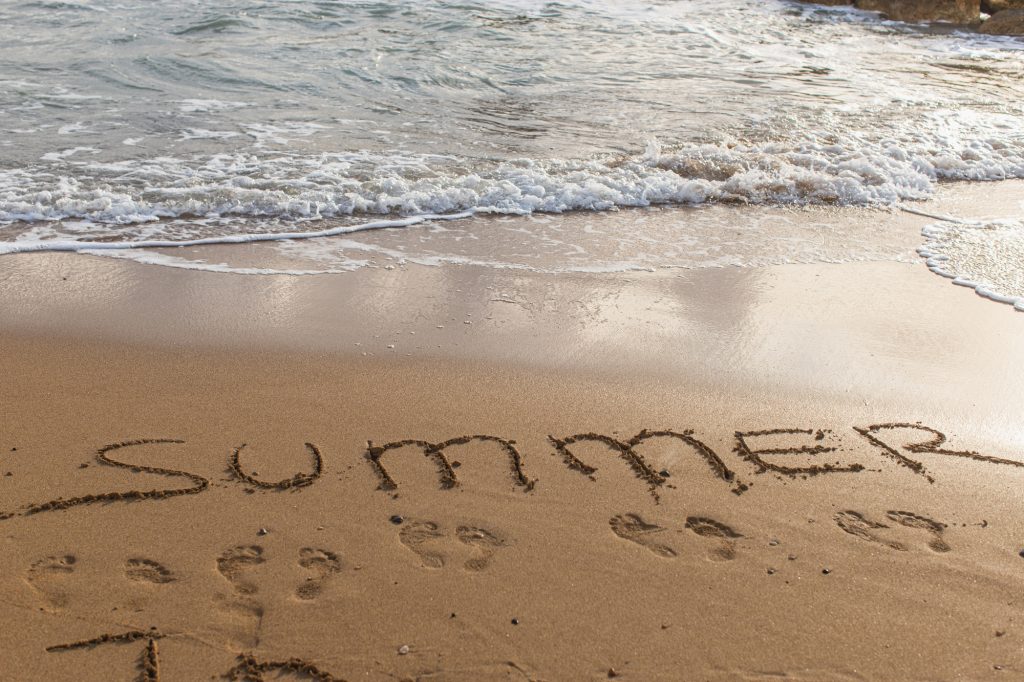Summer invites us outdoors for activities that energize the senses—but the season’s sounds, while enjoyable, can sometimes be harmful. Whether it’s splashing in the pool, rocking out at a music festival, or celebrating with fireworks, your ears are exposed to more hazards than you might think. Thankfully, with a little awareness and a few simple steps, you can protect your hearing all summer long.

Water-related ear infections are especially common this time of year. When water lingers in the ear canal after swimming, it creates the perfect environment for bacteria to grow. This often leads to swimmer’s ear—a painful infection that’s easily preventable. Custom swim plugs are an excellent choice for frequent swimmers. After swimming, gently dry your ears using a towel or let gravity help by tilting your head from side to side. Avoid inserting anything into your ears, including cotton swabs, which can do more harm than good. If you use hearing aids, be sure to remove them before entering the water and store them in a protective, moisture-resistant container.
Summer also comes with a soundtrack of its own: live music, community celebrations, and booming fireworks. These events, while exciting, can put your hearing at risk. Prolonged exposure to high noise levels—anything over 85 decibels—can cause noise-induced hearing loss. To prevent damage, wear earplugs designed for musicians or concerts. They allow you to enjoy the sound without the harmful volume. Try to position yourself farther from speakers or sound sources, and remember to take breaks in quieter areas to give your ears time to recover.
Fireworks, in particular, can be incredibly loud—often louder than a jet engine. Even one close-range blast can result in permanent hearing damage. For safe viewing, watch fireworks from at least 500 feet away. Children and noise-sensitive adults should wear earmuffs for extra protection. It’s always safer to attend professionally organized displays rather than setting off fireworks at home.
Finally, keep your ears in mind while traveling. Flying can cause ear discomfort due to rapid pressure changes, especially during takeoff and landing. Filtered earplugs can help manage this discomfort. And if you use hearing aids, make sure to travel with everything you need—extra batteries, a charger, and a secure carrying case.
If you notice any symptoms like ringing in the ears, decreased hearing, or a feeling of fullness after summer activities, it may be a sign that your ears need attention.
This summer, make hearing health part of your wellness routine. Book a hearing exam and ask about protective solutions tailored to your lifestyle. Summer is a season to enjoy—make sure you’re hearing every moment clearly and safely.

© 2025 Twin Tiers Hearing Aid Clinic. All Rights Reserved | Privacy Policy | Website by Beeman Marketing

Lori is currently the patient care coordinator at Ear to Hear in Elmira, NY & has been with us since 2020. She is absolutely wonderful & enjoys talking with our current patients and getting to meet new ones!

Benjamin and Estelle have been coming to work since they were 12 weeks old. They love greeting patients with excitement, hoping for some attention in return. They love sitting on everyone's lap and getting pet. There have been many opportunities for Benjamin and Estelle to be a comfort to those patients who come into our clinics for the first time feeling nervous. The dogs give them a sense of calmness and make them feel more at home.

Linda had recently joined Twin Tiers Hearing Aid Clinic in our Corning, NY clinic. She is originally from El Paso, Texas and is new to the Southern Tier area. Linda has an extensive background working in the medical field as office support staff and is extremely welcoming, kind and efficient. When she is not at work, she enjoys the outdoor activities that our surrounding area has to offer and she is also looking forward to the change of seasons that the east coast brings us.

Megan has been part of the hearing care industry for the last several years and is the provider in our Corning, NY location. She is very compassionate and caring with our patents and enjoys what she does. Educating the community on hearing loss, cognitive health and tinnitus are a large part of what she does every day. When she is not working, she enjoys the outdoors and spending time with her family and two beautiful girls.

Sean is a Nationally Board-Certified Hearing Aid Dispenser licensed to practice in New York State. He has over 30 years of experience in audiometric testing, verification, and hearing aid fitting. Sean was raised in the hearing care industry with his family who owned and operated O'Brien's Hearing Center in Elmira, NY for over 40 years. Sean joined the staff of Twin Tiers Hearing Aid Clinic in 2025 so that he can focus on what he loves to do most, taking care of his patients. He is the main provider in our Elmira, NY clinic.

Adrienne is a Board-Certified NYS licensed hearing instrument specialist who started in the hearing health care industry as a PCC. She later became a provider and then eventually became a clinic owner. Adrienne opened Twin Tiers Hearing Aid Clinic in Corning, NY in 2021 with a second location in Elmira NY. She later acquired Ear to Hear located in Auburn and Geneva, NY and later added The Hearing Aid Shop in Bolivar NY. Adrienne is excited to bring her excellent service and patient centric care to her clinics. She feels that hearing is the pathway to many of life’s great connections, and she finds joy in helping others find those important connections again. Adrienne currently resides in Horseheads NY with her family and dogs.